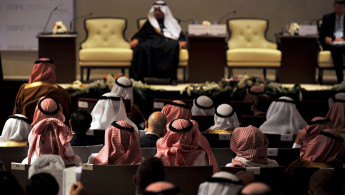UK doubles money handed to Saudi Arabia and Bahrain via secretive ‘Gulf Strategy Fund’
The UK more than doubled its funding to Saudi Arabia and Bahrain via a secretive fund despite repeated criticism over the Gulf states’ poor human rights record and a looming domestic cost of living crisis.
Freedom of Information requests revealed that the UK Foreign Office's Gulf Strategy Fund (GSF) provided Saudi Arabia with a funding increase of £813,605 to £1.8 million in 2021-22. In Bahrain, funding was raised from £710,028 to £1.8 million.
The GSF has been slammed by several politicians and human rights groups for its lack of transparency, with senior MPs calling for it to be scrapped entirely.
"The UK works with partners around the world to improve their human rights record, including the Gulf," said the UK Foreign, Commonwealth and Development Office (FCDO) according to Middle East Eye.
"All cooperation through the Gulf Strategy Fund is subject to rigorous risk assessments to ensure all work meets our human rights obligations and values," they added.
It is not clear what the increase in funds will be used for, or why it was implemented.
On Friday, the FCDO published updated "transparency data" on the GSF.
For Bahrain, the UK government said Britain “supports Bahrain-led and owned reform and capacity building programmes to deliver long-term security”.
This is followed by a series of bullet points listing schemes such as "criminal justice reform" without further information.
In Saudi Arabia, the UK has used the GSF to support Vision 2030 as well as to enhance "mutual prosperity by promoting inward investment".
One of the bullet point list items simply says "smart cities and mobility opportunities in Saudi Arabia for UK companies". Saudi Crown Prince Mohammed bin Salman has launched a series of projects building megacities in the desert, including furitistic metropolis NEOM with a budget of US$500 billion.
An increase to the GSF comes as Britons face surging energy bills, with an estimated monthly energy bill of £3,000 to hit this winter. The UK government has been accused of offering an insufficient support package to help the most vulnerable afford power.
There are also concerns and growing scrutiny over human rights abuses in the two Gulf states.
Earlier this month, Leeds University student Salma al-Shehab was jailed for 34 years after she published a tweet that was mildly critical of a government programme.





 Follow the Middle East's top stories in English at The New Arab on Google News
Follow the Middle East's top stories in English at The New Arab on Google News
![Both Hamas and the Palestinian Authority welcomed the ICC arrest warrants [Getty]](/sites/default/files/styles/image_330x185/public/2024-11/GettyImages-2178351173.jpg?h=199d8c1f&itok=TV858iVg)

